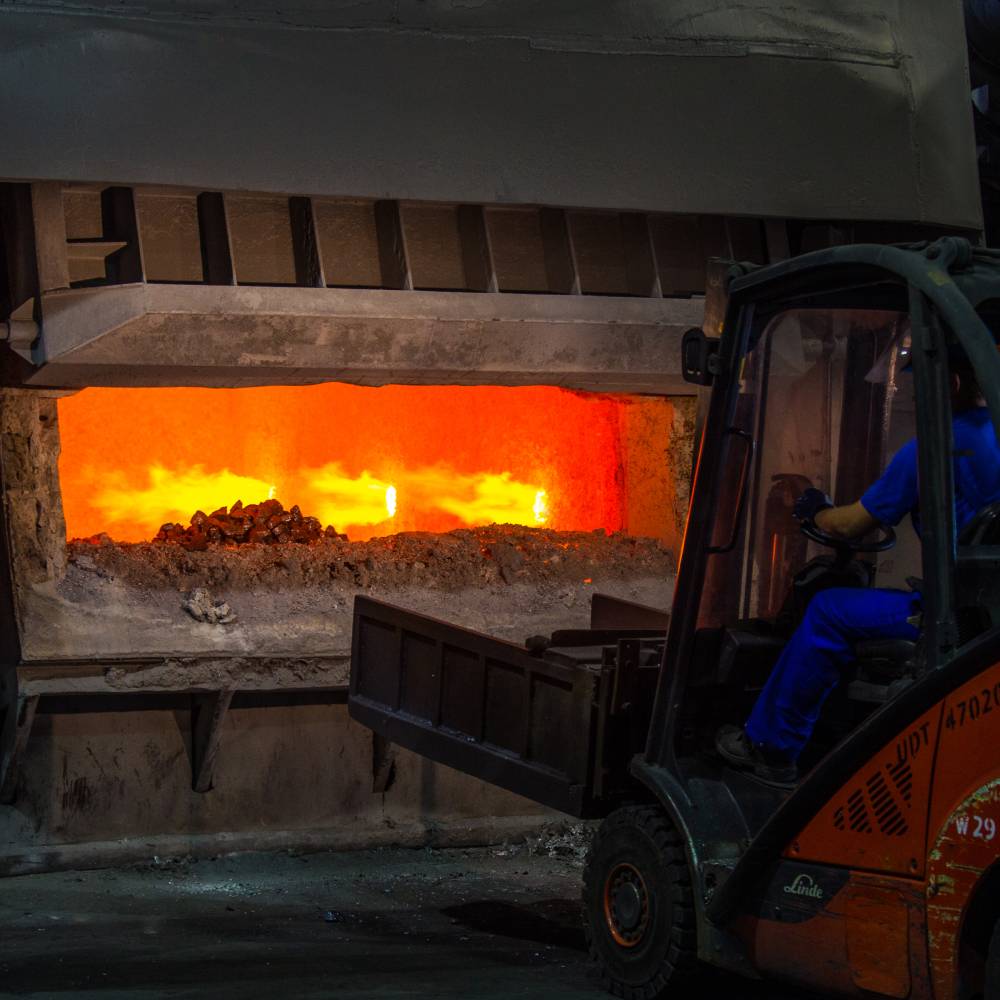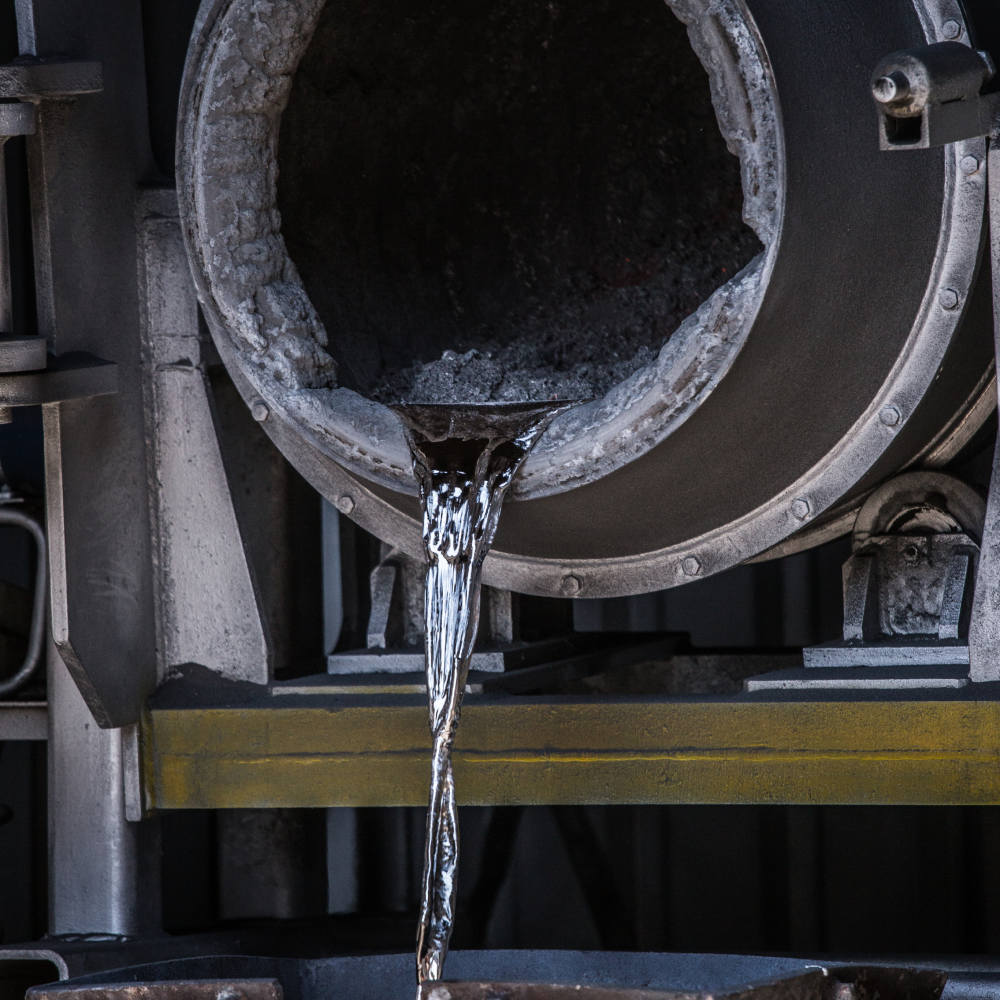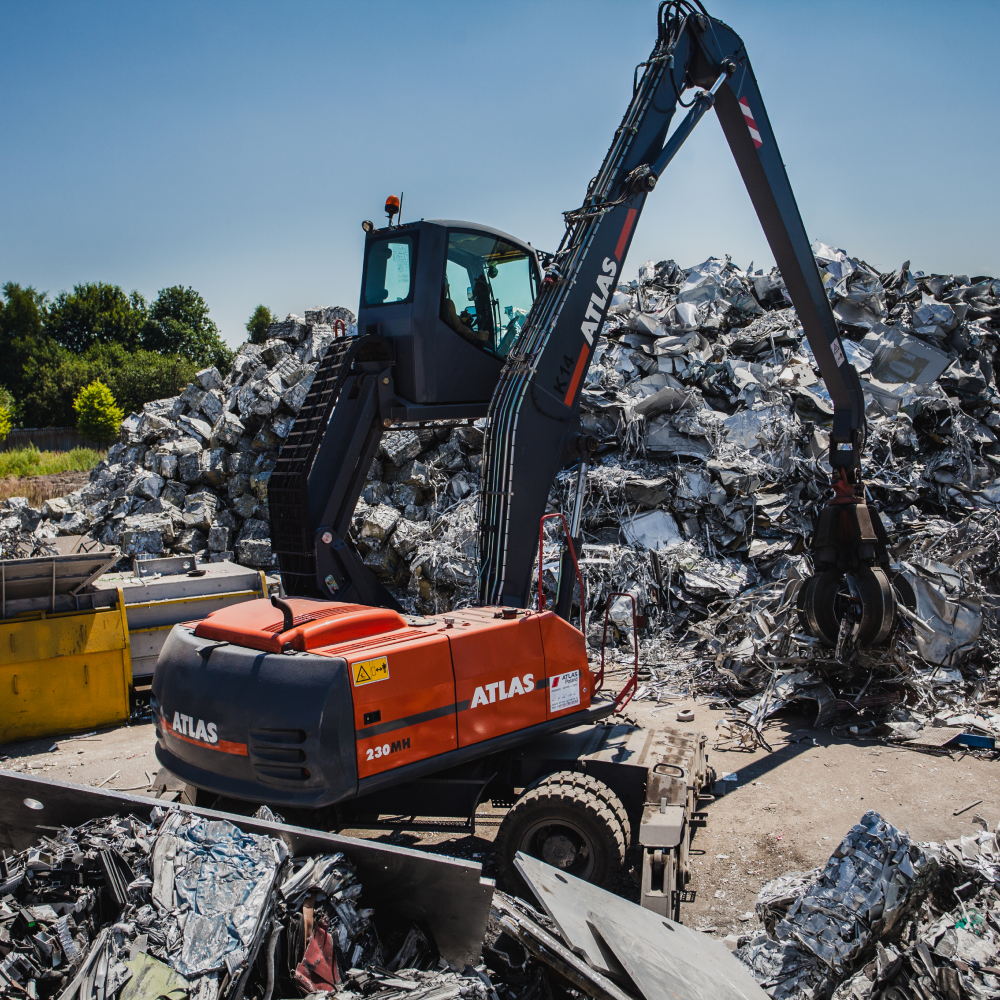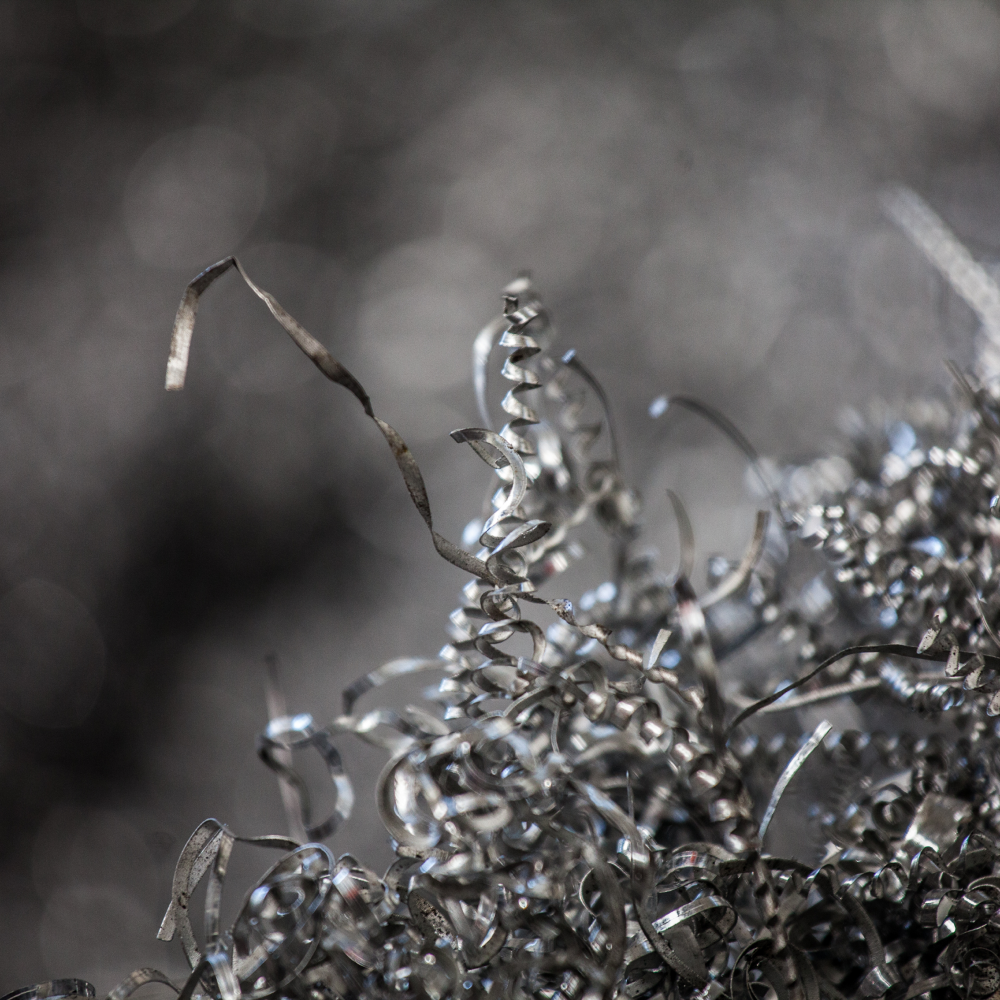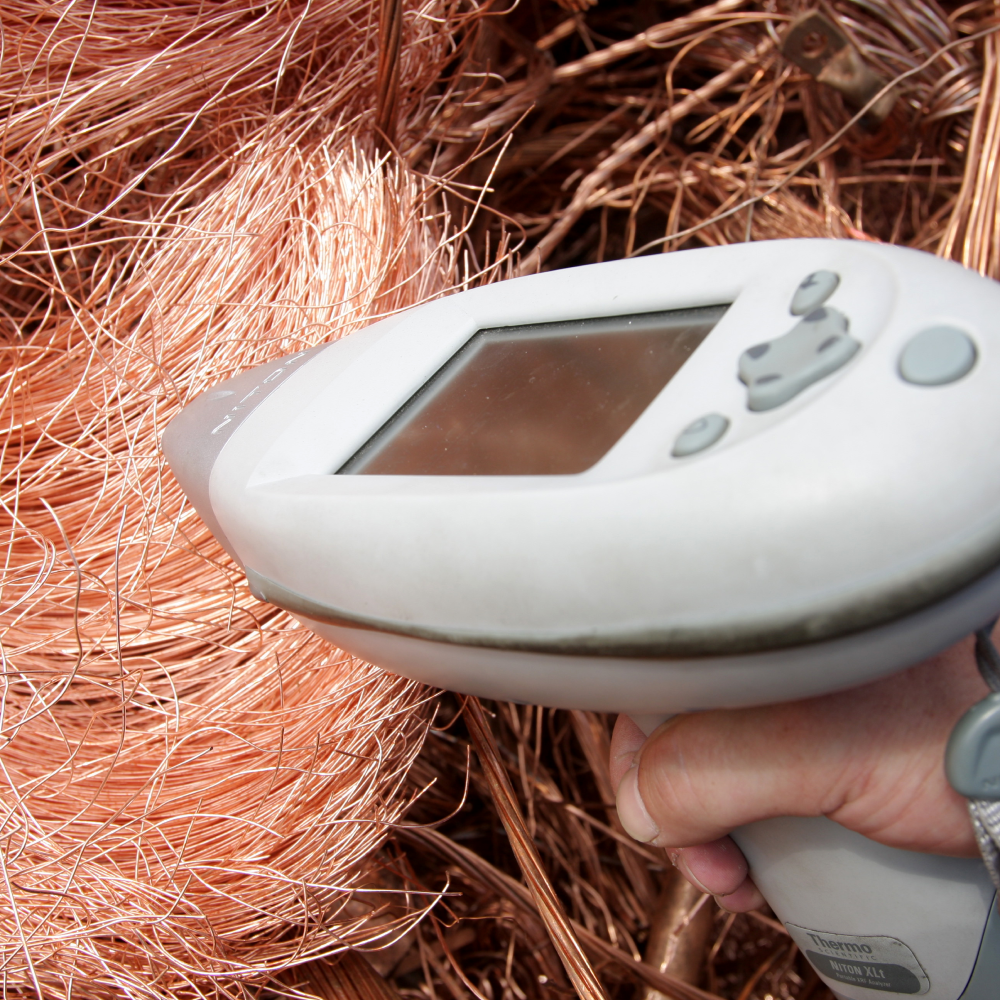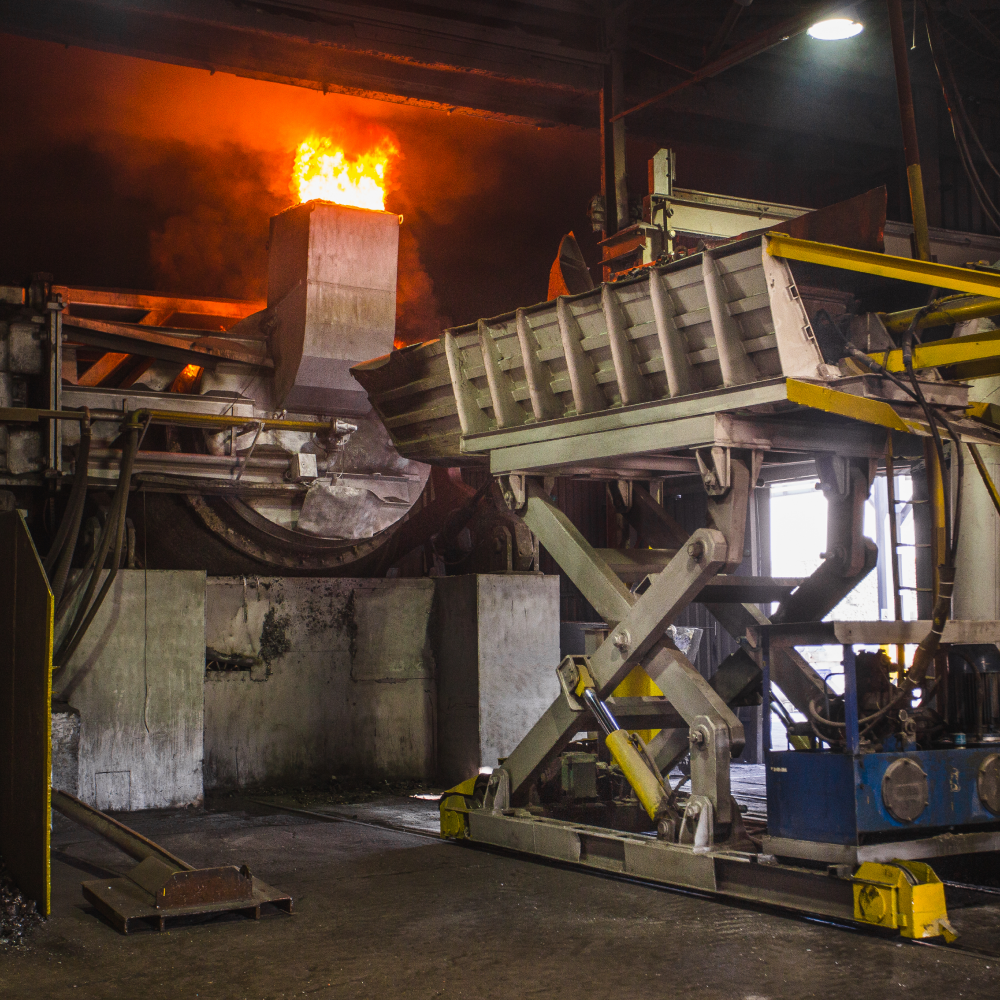Manufacturing process
Aluminium is a lightweight and ductile metal that does not lose its properties during remelting. This is precisely why its production can be cyclical.
The aluminium alloys we produce from scrap are delivered to our customers’ factories, where they are used to make car parts or other products. After many years of use, the worn-out parts will once again end up in the scrap heap. Chances are that our specialists will procure them for processing at Nicromet production facilities, where they will once again be remelted into aluminium alloys.
It is estimated that around 75% of the material produced to date is still in use. Producing aluminium from scrap is cheaper and requires less energy than extracting it from ore.
Aluminium recycling also releases up to 95% fewer pollutants into the environment.


The production process
in our factories can be broken down into six stages:
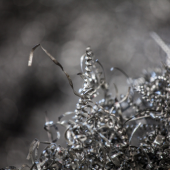
Alloy production uses aluminium scrap and alloying additives such as silicon, nickel mortars, manganese, titanium and others.
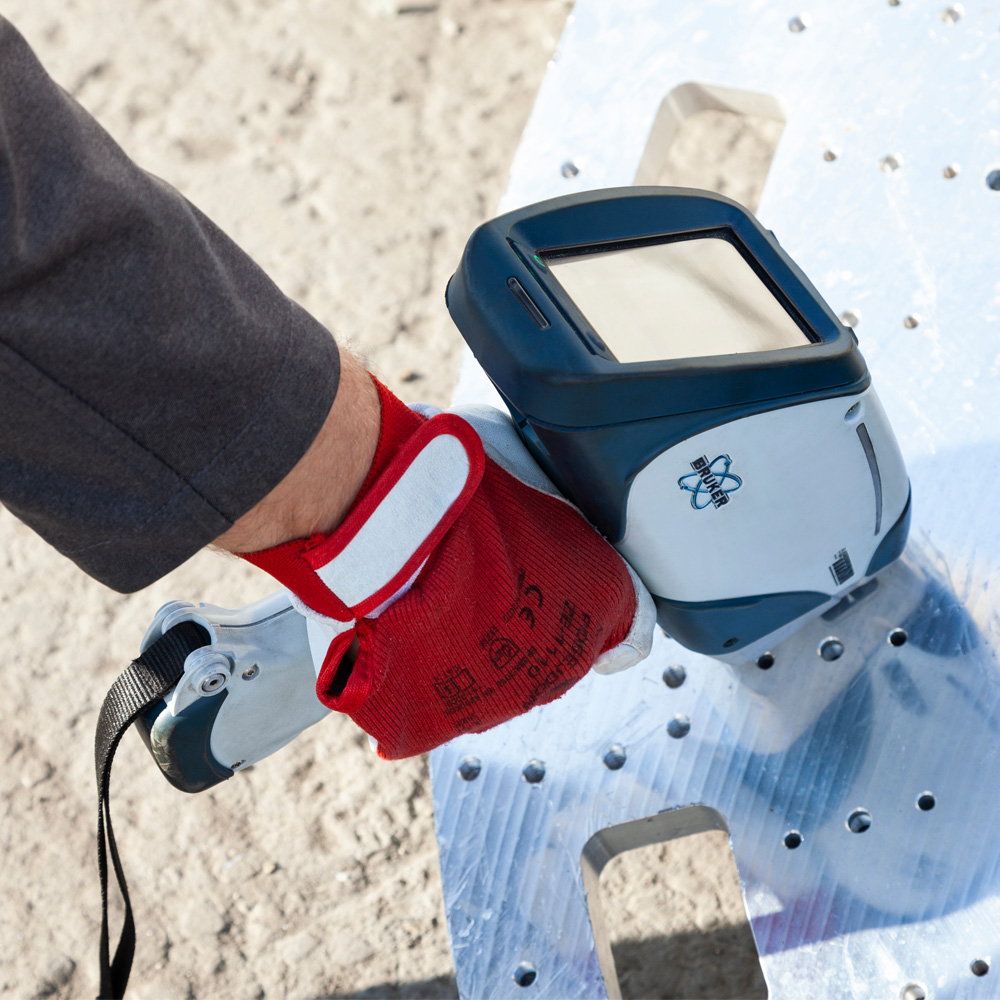
Each shipment is checked in detail for radioactivity, chemical composition and impurities.
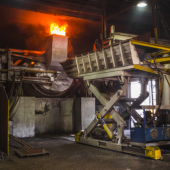
Producing an alloy with the required chemical composition requires melting and refining a properly selected raw material batch.
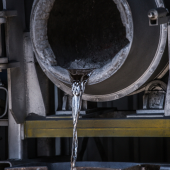
Metal pouring is carried out using special transport ladles or hot-metal runners. The alloy is delivered to the customer in the form of cones or ingots, or in liquid form.

Castings made from recycled scrap aluminium are used by our customers to manufacture automotive parts and other products.
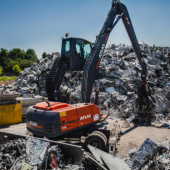
Today’s eco-friendly trends and sustainability programmes mean that more and more aluminium is being recycled. Aluminium itself is characterised by high recoverability.

